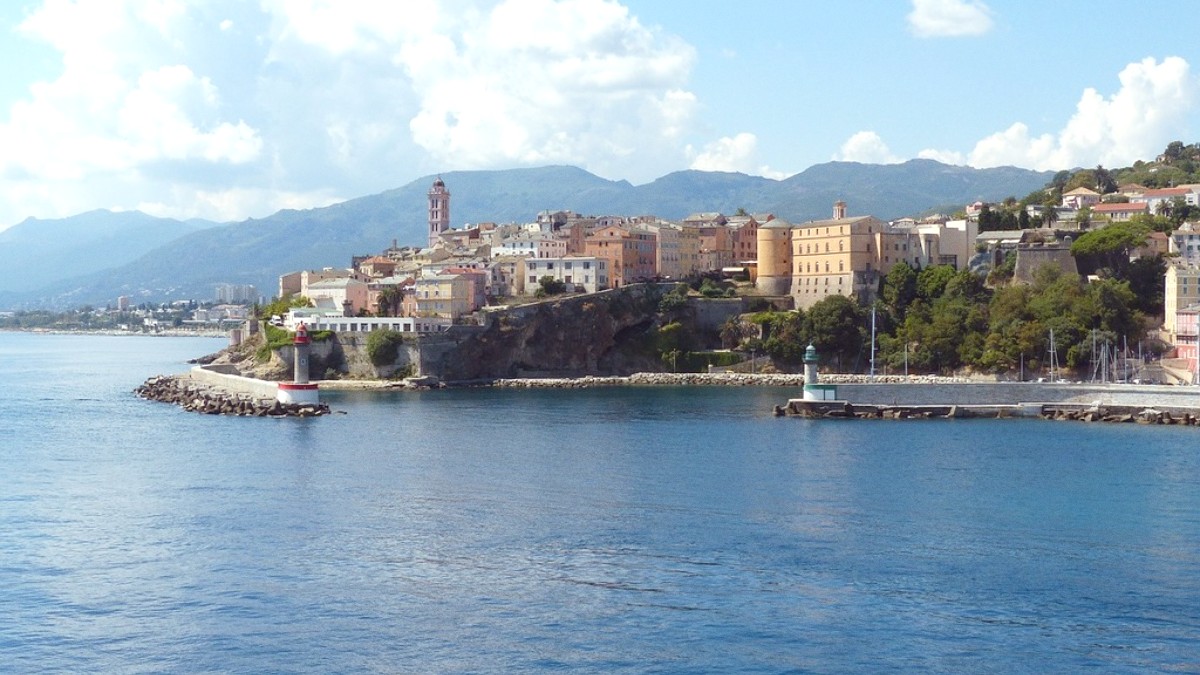
Corsica, France
Corsica's historical ties to Genoa and France have shaped its unique culinary identity. The rugged interior and reliance on agriculture created rich traditions of cured meats, cheeses, and chestnut-based dishes.
The coastal influence brings fresh seafood, creating a rich and diverse culinary landscape.
Chestnut flour is a core staple for bread, Pulenta, and desserts. Free-range Porcu nustrale yields exceptional charcuterie like Figatellu, Coppa, Lonzu, and Prisuttu.
Corsican cheeses primarily from sheep's or goat's milk. Brocciu, a fresh whey cheese, is emblematic. Fresh fish and seafood from the Mediterranean feature prominently on menus.
The Maquis provides aromatic herbs like myrtle, immortelle, rosemary, and marjoram, infusing many dishes. High-quality local olive oil is a common ingredient.
A fresh pork liver sausage, traditionally grilled and served with Pulenta or lentils. Robust, earthy flavor, a winter specialty.
Seek it out from charcuterie shops or local restaurants during colder months.
Versatile fresh cheese, emblematic of Corsica. Enjoy plain with honey, or in Fritelli, Cannelloni, or Fiadone.
Protected by an AOP, available from November to May.
Slow-cooked veal stew with olives, served with pasta or Pulenta. Aziminu is the Corsican bouillabaisse, a flavorful fish soup with local fish.
Find veal stew in traditional eateries, Aziminu at coastal restaurants.
A light, lemon-flavored cheesecake made with Brocciu. A refreshing and popular dessert found in many restaurants.
Savory or sweet fritters made with Brocciu cheese. The sweet version often comes dusted with sugar, a delightful treat.
A few upscale restaurants in Bastia offer refined Corsican and French cuisine. Many boast beautiful sea views. Reservations are essential for dinner, especially during high season.
These are abundant, notably in the Old Port, Citadel, and city center. They balance quality and price, serving traditional Corsican dishes, French classics, and Italian-influenced fare.
Bakeries, pizzerias, creperies, and sandwich shops offer affordable options for quick meals. Markets are excellent for picking up local charcuterie, cheeses, and bread.
While meat and cheese are central, vegetarian options like vegetable tarts, salads, and pasta are increasingly available. Vegan options are more challenging but possible with specific requests.
Clearly communicate your needs to staff.
Awareness of gluten-free and other allergies is growing, but options may be limited outside higher-end establishments. Use a translation app or pre-written note in French for clarity.
Corsican cuisine often features wheat, so inquire about ingredients.
Specialized restaurants are rare. Some larger supermarkets may carry a small selection of certified products.
Plan to self-cater if these dietary needs are strict.
Online searches for "Bastia restaurants végétarien" or "sans gluten" can identify suitable places.
Carrying a small translation guide for food terms proves useful for clear communication.
Check local calendars for seasonal food fairs or festivals, often focusing on specific products like chestnuts or charcuterie. These offer a rich cultural experience.
Typically take place outside the immediate city center.
Dining at a traditional Auberge (inn) in the surrounding countryside provides an authentic Corsican culinary experience. These serve hearty, home-cooked meals.
Expect rustic settings and local ingredients.
For specific dietary needs, searching online before your visit can help identify restaurants that cater to those requirements.
Larger supermarkets in Bastia may stock a limited selection of specialty dietary products (e.g., gluten-free items, organic produce).
Embrace the slow pace of Corsican dining; meals are meant to be savored.